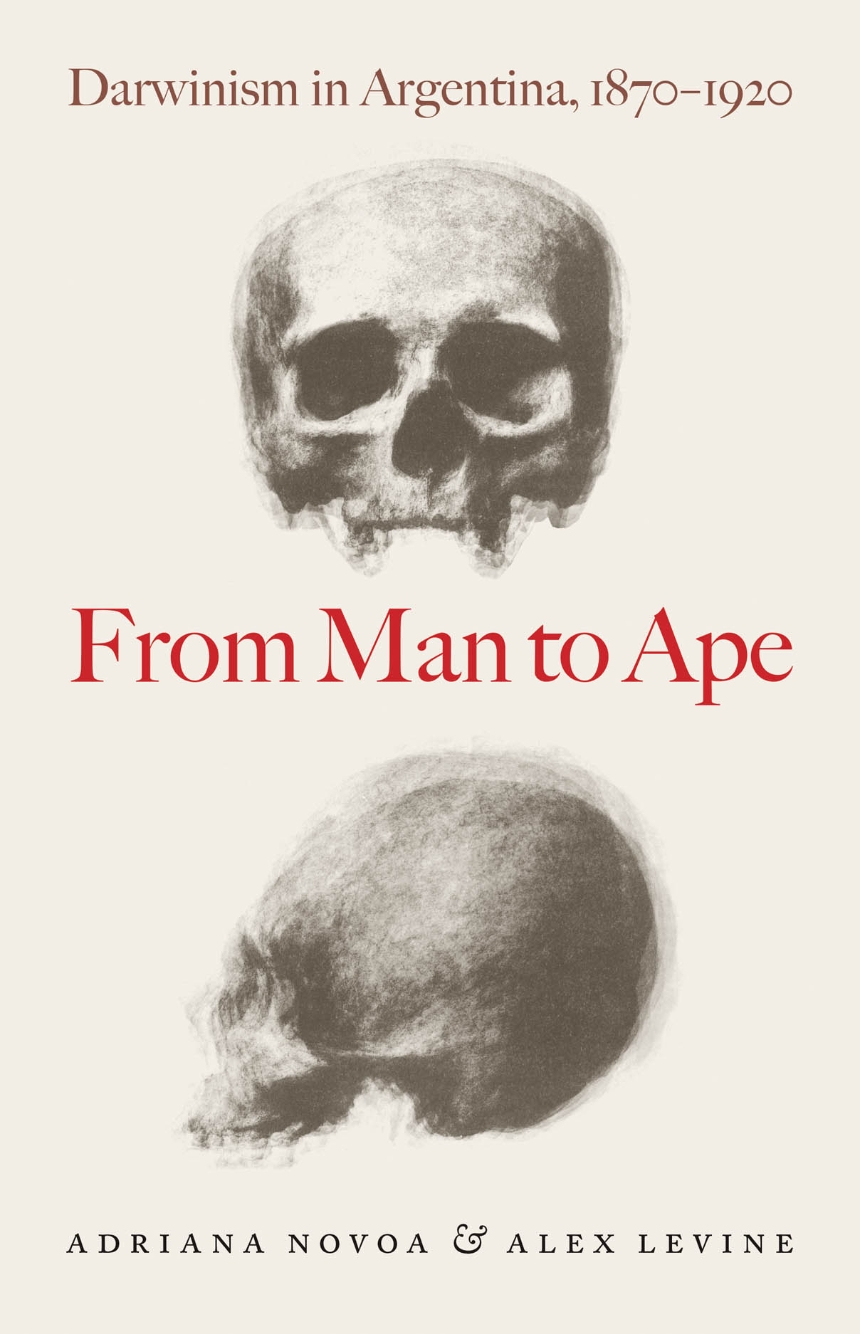From Man to Ape
Darwinism in Argentina, 1870-1920
Upon its publication, The Origin of Species was critically embraced in Europe and North America. But how did Darwin’s theories fare in other regions of the world? Adriana Novoa and Alex Levine offer here a history and interpretation of the reception of Darwinism in Argentina, illuminating the ways culture shapes scientific enterprise.
In order to explore how Argentina’s particular interests, ambitions, political anxieties, and prejudices shaped scientific research, From Man to Ape focuses on Darwin’s use of analogies. Both analogy and metaphor are culturally situated, and by studying scientific activity at Europe’s geographical and cultural periphery, Novoa and Levine show that familiar analogies assume unfamiliar and sometimes startling guises in Argentina. The transformation of these analogies in the Argentine context led science—as well as the interaction between science, popular culture, and public policy—in surprising directions. In diverging from European models, Argentine Darwinism reveals a great deal about both Darwinism and science in general.
Novel in its approach and its subject, From Man to Ape reveals a new way of understanding Latin American science and its impact on the scientific communities of Europe and North America.
Reviews
Table of Contents
Introduction
Part I
1. The Roots of Evolutionary Thought in Argentina
2. The Reception of Darwinism in Argentina
3. The Triumph of Darwinism in Argentina
Part II
4. The Culture of Extinction
5. Sexual Selection and the Politics of Mating
6. Evolutionary Psychology and Its Analogies
Conclusion
Notes
Works Cited
Index
